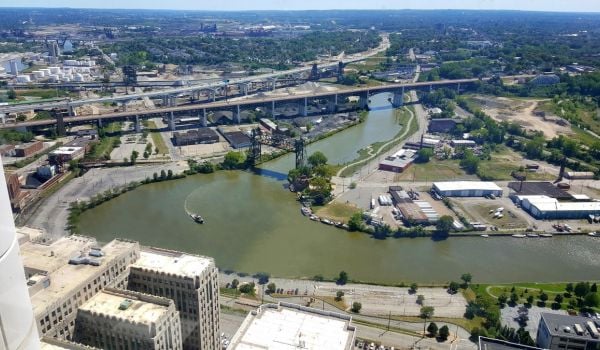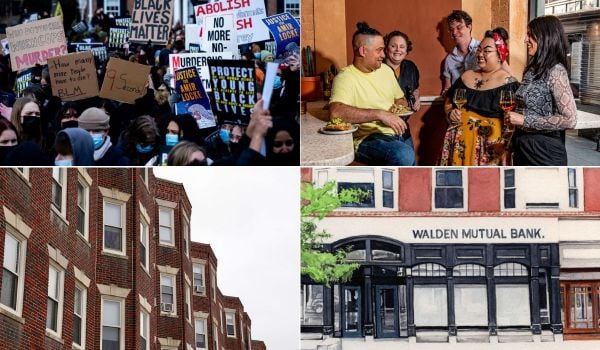It was announced today that Cleveland will host the 2016 Republican National Convention. The city’s mayor, Democrat Frank Jackson, as well as state Republicans, have been touting the convention not just as a point of pride, but for its economic impact, estimated at more than $200 million. It’s a hefty amount, but actually a little bit less than what was estimated to have been generated by the NCAA Final Four in Dallas, which had been in the running for convention host. The difference between these events? One of them is subsidized by the federal government. You have to wonder what the state’s Tea Party will think about that!
One would think that the convention would pay for its venues and security, but actually, that comes at the local and national taxpayers’ cost. And what a cost it will be: The Republican National Committee (RNC) has requested that the host committee put $68 million in escrow to cover the fees for hosting the convention.
Why are local politicians, including Democrat mayors, lobbying to host the convention then? Like other outsized gatherings, this one will fill tens of thousands of hotel rooms and bring economic activity to the city. Indeed, as a study from last election season’s host — Tampa Bay — showed, a convention can generate $214 million in direct and indirect spending. A few asterisks are in order, however.
- The study was commissioned by the host committee, hardly an unbiased group.
- $125.3 million of the total direct spending was related to upgrades to telecommunications and utility infrastructure by AT&T, Verizon, Sprint and TECO Energy. One could argue that these upgrades would have happened anyway and weren’t dependent on the convention.
- Finally, the type of economic activity wasn’t the kind that rewards small, local businesses, but rather those industries that catered specifically to tourists. According to the Tampa Bay Times, “The winners include hotels, Tampa International Airport, bakeries, florists and companies that sell the kind of fresh gulf seafood tourists like. The losers: restaurants and bars, which saw so many regular customers stay home that sales either lagged behind the rest of Florida or dropped.”
Previous RNC conventions did not generate as much money — in 2008, Minneapolis estimated that it generated about $170 million in new spending.
The Beacon Hill Institute based in Boston studied the 2004 Democratic National Convention in Boston and its Republican counterpart in New York City. Given that these conventions were the first ones held after September 11th, security had to be heightened. For example, a major Boston highway was shut down while John Kerry was in the convention building. Paul Bachman, director of research at the institute, noted that in order for Boston to hold the convention, the city had to turn away other events, such as a tall ships parade and a gymnastics trial, both of which would have brought in thousands of tourists and their buying power. But other factors depressed the economic impact: Office workers were told to skip work, restaurants closed. As a result of the security, the opportunity costs and the slow local economy, the city netted just $14.8 million in economic benefit. Moreover, the supposed extra publicity that the convention brings doesn’t seem to last for the city. “We just couldn’t see that in the data. There’s no statistical bump in visitors,” Bachman says.
But conventions provide more of a boost in cities without much tourism or higher unemployment rates. Bachman adds, “In a state like Ohio with higher unemployment, it will boost employment in Cleveland.”

Diana Lind is the former executive director and editor in chief of Next City.



__Sean_Corrigan_from_Cleveland_Sews_(center)__and_Paula_Coggins_from_Oh_Sew_Powerful_(right)_sew_leftover_banners_from_the_NFL_Draft_into_handbags_-_photo_by_Sophie_Kannberg_600_350_80_s_c1.jpeg)










